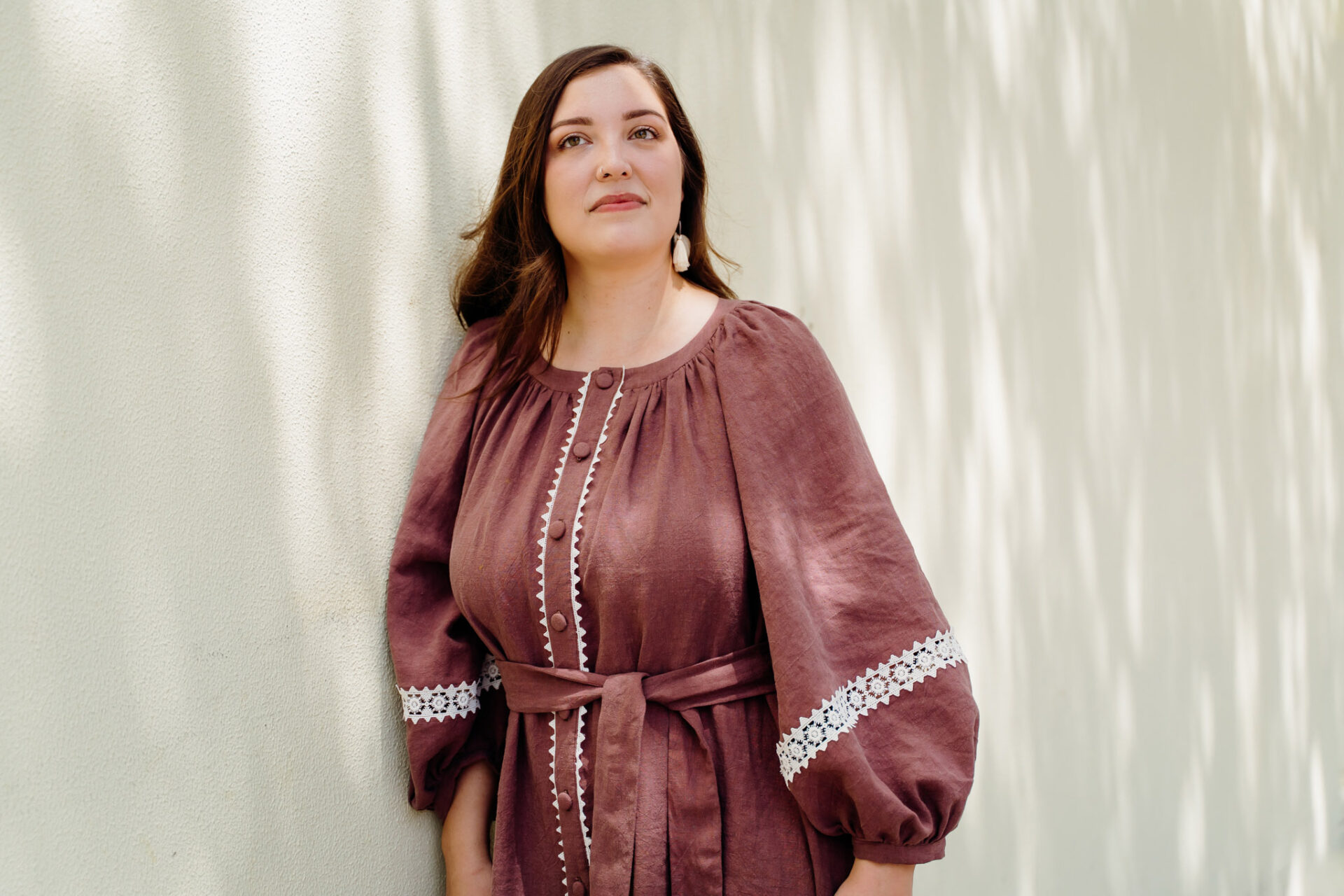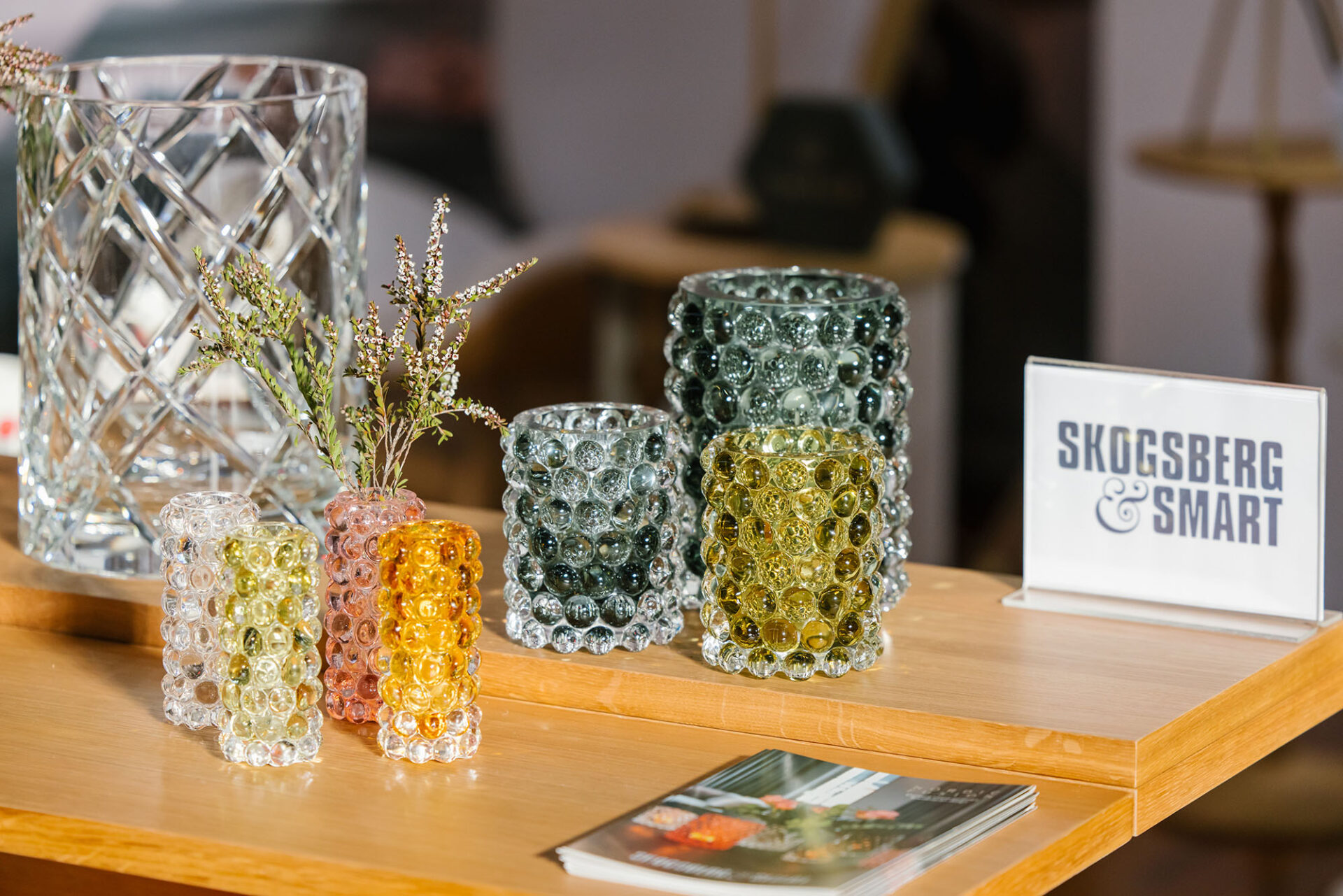Generate Good: The Winery Preserving Both Land and Grapes
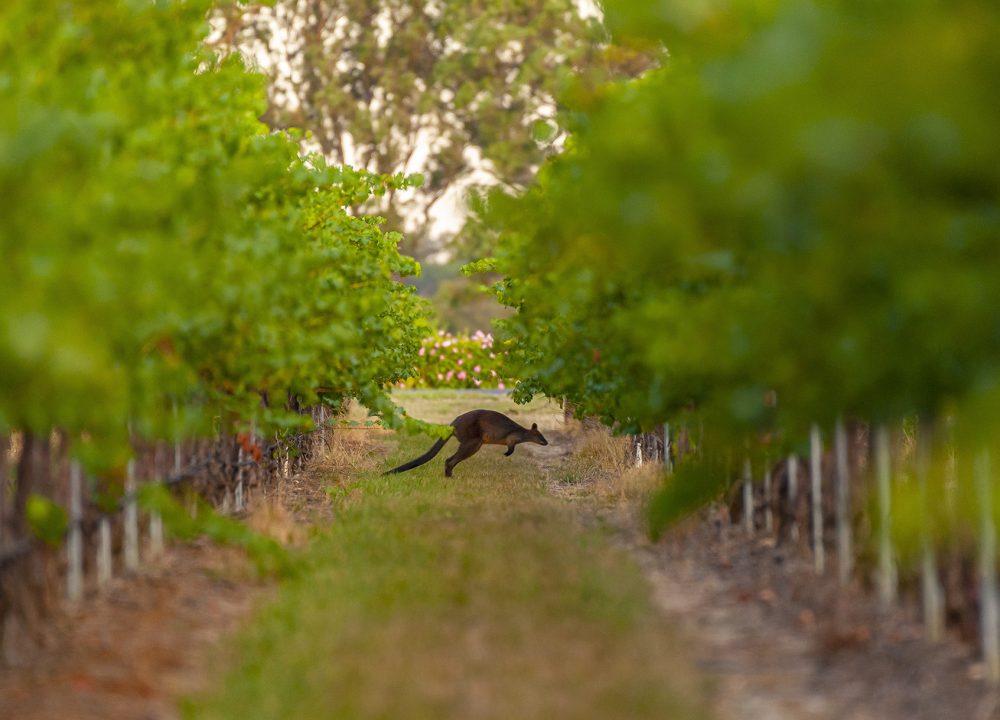
- Words by Peppermint
Tradition and innovation are a natural pairing at Yalumba, Australia’s oldest family-owned winery, especially when it comes to sustainable viticulture.
words EMILY LUSH photos YALUMBA
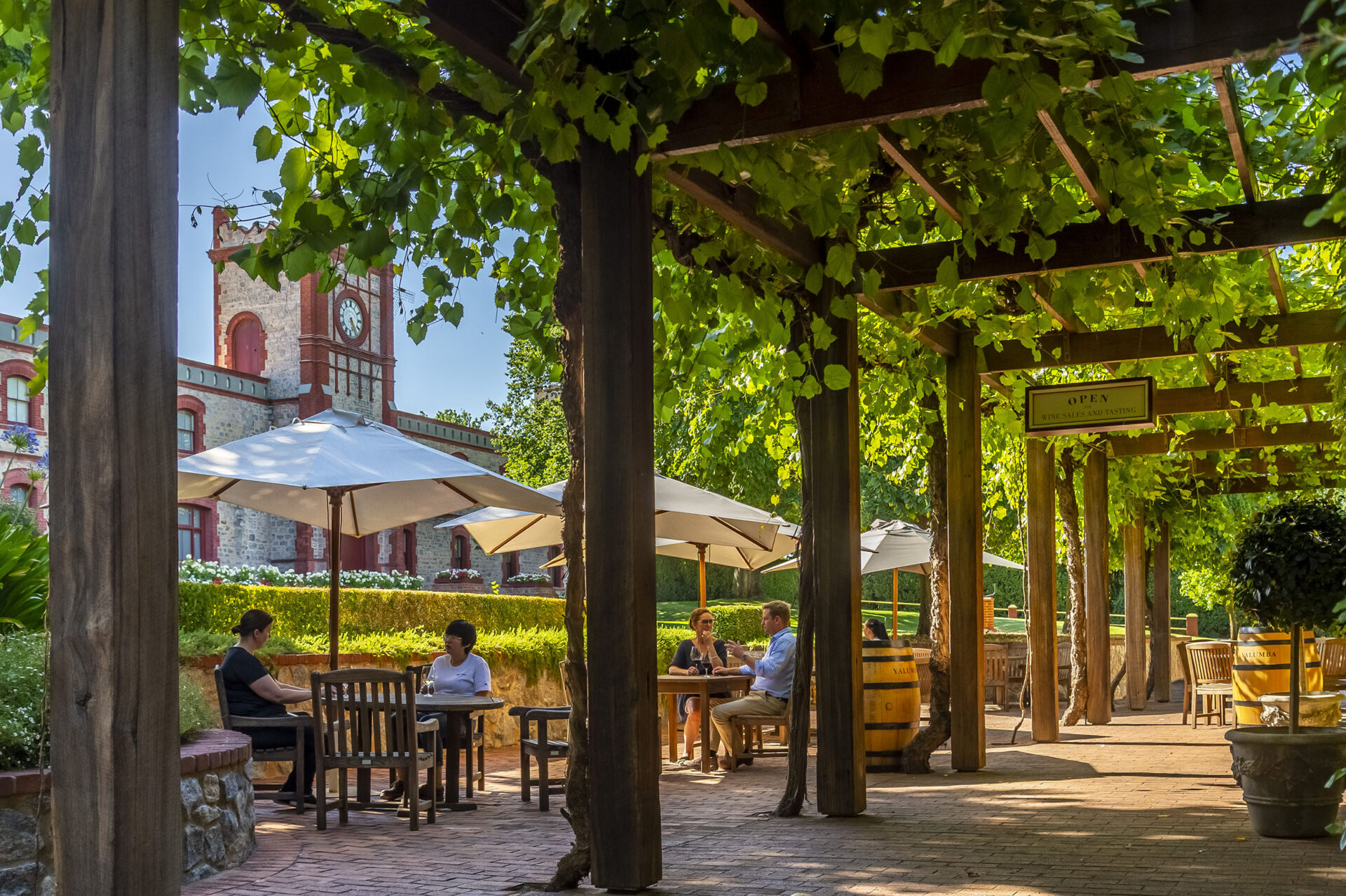
Fierce independence, a pioneering spirit and a fearless ability to think outside the barrel. These are the traits that have allowed Yalumba to adapt and prosper in the face of a changing climate. And they can all be traced back to the vineyard’s founding father, Samuel Smith, 173 years ago.
A British brewer who emigrated to South Australia from Dorset in 1847, Samuel settled his family on the eastern side of the Barossa Valley near Angaston, 80 kilometres from Adelaide, where he worked as a gardener. He experimented with grafting vines and making wine until, after striking gold in Bendigo in 1852, he purchased a plot of land and established his own farm.
Back then, Yalumba (the name comes from an Aboriginal word meaning “All the land around”) was a mixed holding with fruit orchards, vegetable gardens, jersey cows and thoroughbred horses. But it was those first grape vines that he planted in 1849 that would become the focus of the property, eventually expanding to cover more than 400 hectares across the Barossa and beyond.
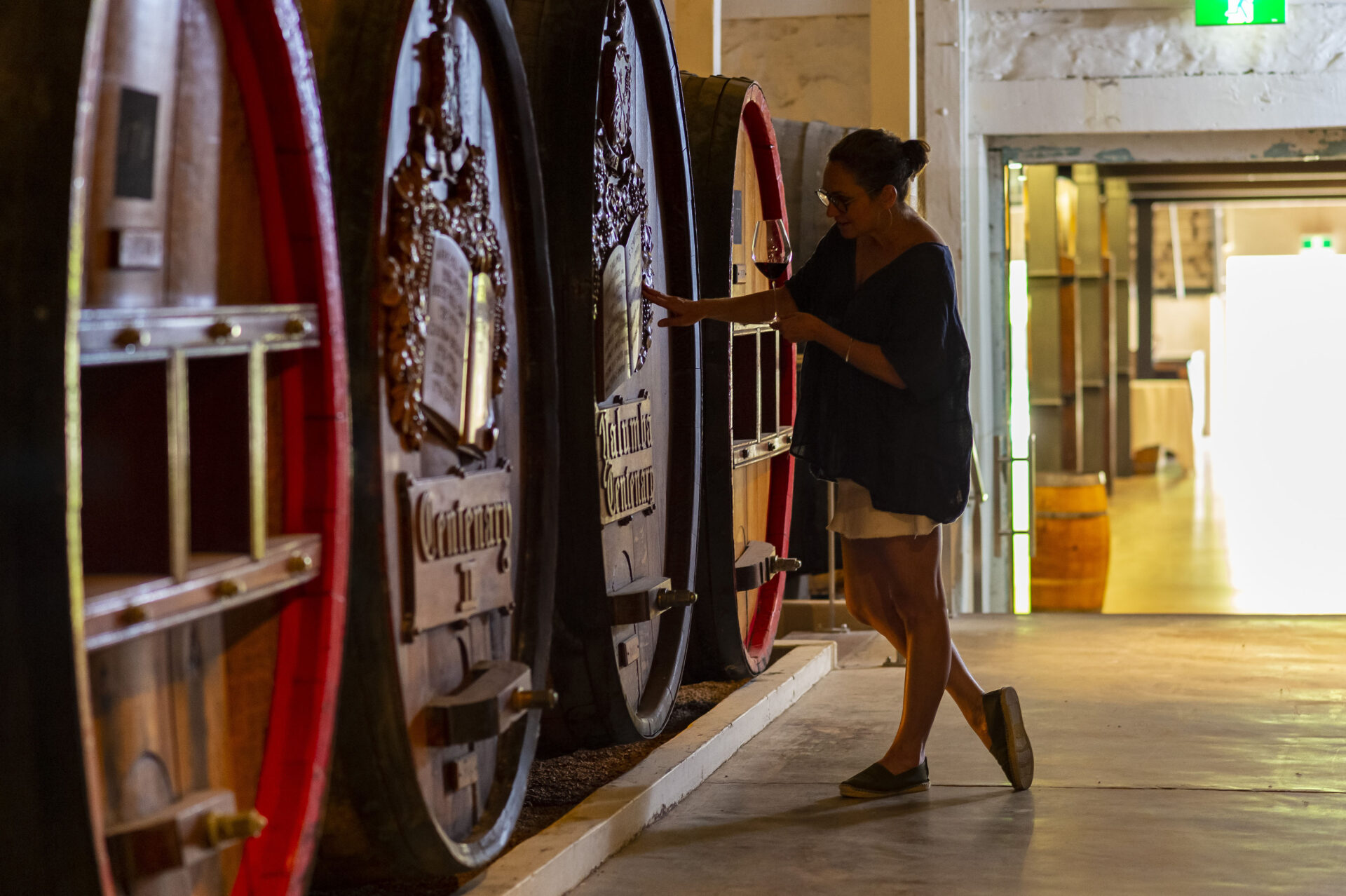 It was against this backdrop of heirloom trellises, red soil and umber hills that Jessica Hill-Smith was raised. “Yalumba was our backyard growing up,” she remembers a childhood spent with her two sisters, Georgia and Lucy. After graduating from the University of Adelaide, Jessica made her first foray into the wine world in the US and the UK before returning home to take up her place in Yalumba’s marketing team. This makes her the sixth generation family member to work on the estate after her father, current Yalumba chairman, Robert Hill-Smith. It was the ultimate homecoming for Jessica. “Through osmosis, it has always been a part of who I am,” she says of the property. “I always knew that one day I would come back to join the family business.” It’s as if she was summoned back by the tangled vines, the musical tap tap of coopers making barrels in the Yalumba cooperage – the only onsite working cooperage in the southern hemisphere where oak barrels are still crafted by hand the old-fashioned way – and memories of the grand marble clocktower, a fixture of the property since 1907 and a monument to the family’s immovable, uncompromising commitment to the region.
It was against this backdrop of heirloom trellises, red soil and umber hills that Jessica Hill-Smith was raised. “Yalumba was our backyard growing up,” she remembers a childhood spent with her two sisters, Georgia and Lucy. After graduating from the University of Adelaide, Jessica made her first foray into the wine world in the US and the UK before returning home to take up her place in Yalumba’s marketing team. This makes her the sixth generation family member to work on the estate after her father, current Yalumba chairman, Robert Hill-Smith. It was the ultimate homecoming for Jessica. “Through osmosis, it has always been a part of who I am,” she says of the property. “I always knew that one day I would come back to join the family business.” It’s as if she was summoned back by the tangled vines, the musical tap tap of coopers making barrels in the Yalumba cooperage – the only onsite working cooperage in the southern hemisphere where oak barrels are still crafted by hand the old-fashioned way – and memories of the grand marble clocktower, a fixture of the property since 1907 and a monument to the family’s immovable, uncompromising commitment to the region.
“There is a feeling you get when you walk up the garden path towards that clocktower,” Jessica muses. “It cannot be put into words, but I definitely know you cannot manufacture or reinvent that feeling anywhere else.”
Anyone who drinks Yalumba might say the same thing about the wines. Distinctly Australian and truly of the earth, every bottle is an ambassador for the Barossa, a manifestation of liquid geography.
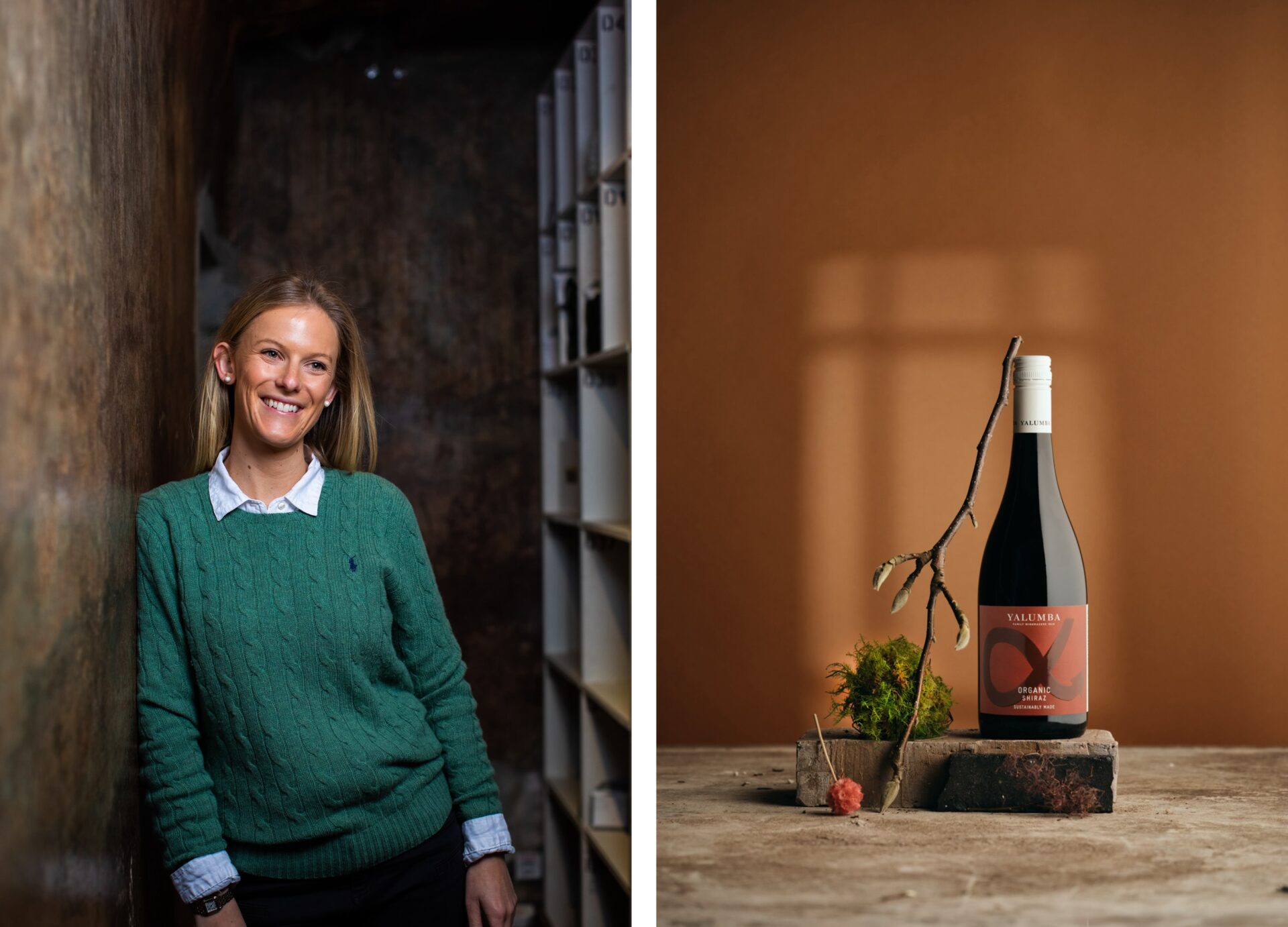
above left: JESSICA HILL-SMITH, DESCENDENT OF YALUMBA’S FOUNDER
Today, Yalumba has estate vineyards across the well-known Barossa Valley and the cooler Eden Valley – where lower temperatures and rocky terroir provide the perfect conditions for viognier and aromatic lifted shiraz and cabernet – and to the Menzies Estate at Coonawarra, four hours south-east of Adelaide – where the famous red terra rossa and porous limestone support fine cabernet sauvignon. But the heart of Yalumba remains here in the Barossa.
Yalumba’s defining equipoise of protecting heritage and embracing change. “We walk a fine line between honouring our history and ensuring we are not old-fashioned,” Jessica confirms. “Remaining relevant is the challenge after 170 years!” It’s one that Yalumba has never shied away from, especially when it comes to adapting to the pressures of global warming.
The wine industry is particularly susceptible to the impacts of climate change, with rising temperatures, longer summers and interrupted rain and frost patterns affecting everything from the sugar content of the grapes to the volume of the harvest. At the same time, the vineyard is fertile ground for creativity and resourcefulness.
Committed to continual sustainable improvement in the vineyard, since the mid-1990s, Yalumba has received 43 accolades for its sustainable practices, including the International Award of Excellence for Sustainable Wine Growing in 2013. Yalumba is accredited by Sustainable Winegrowing Australia and an applicant member of International Wineries for Climate Action – among other organisations.
The Yalumba estate is committed to 100% recyclable or compostable packaging by 2025, plus a comprehensive approach to water preservation, waste reduction and carbon neutrality. In 2019, the team received an Environmental Excellence Award from the South Australian Wine Industry Association for vanguard projects including mid-row native saltbush planting in organic vineyards and undervine mulching to achieve a 25% reduction in water use.
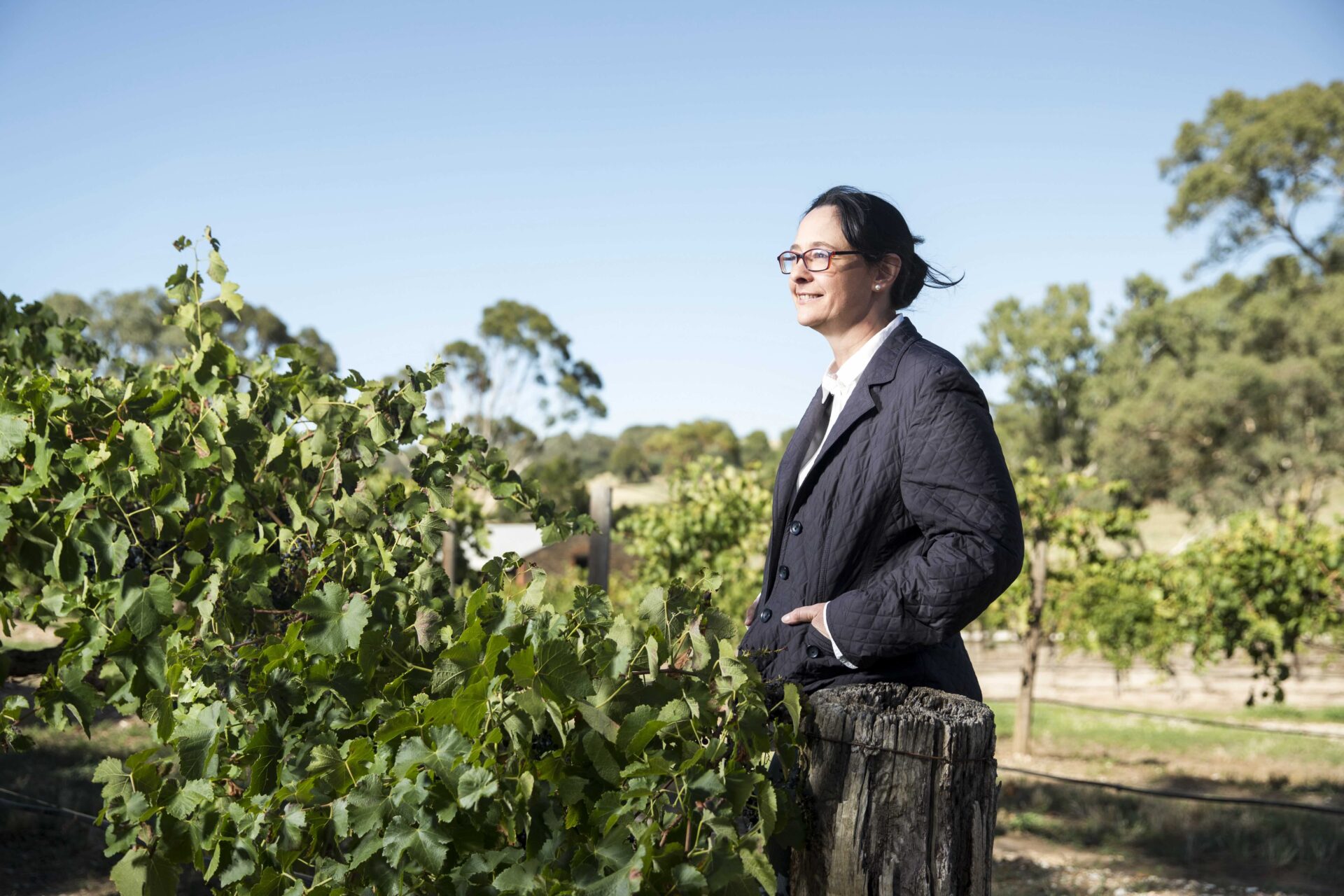
above: LOUISA ROSE, WINEMAKER AND HEAD OF SUSTAINABILITY AT YALUMBA
Yalumba’s commitment to sustainability flows down from its operations and filters its way into each and every bottle of wine. “All our wines are 100% vegan friendly, using wild yeast and without animal-derived fining agents,” explains Louisa Rose, Yalumba’s chief winemaker of 16 years, now the brand’s head of sustainability.
Since her first vintage in 1992, Louisa has played a defining role in shaping Yalumba, always working with, never against, the vines. “We know after many years that this is the best way to bring out the flavours and textures of the wine,” she explains. “We were quite innovative all those years ago – innovative by doing less, even though it is a much more natural way to make wine.”
The Yalumba way of winemaking is low intervention, always yielding to Mother Nature as a guide during the vinification process. As such, Louisa sees her role as that of a steward. “We are caretakers of the vineyards, acting on behalf of the land to make the right decisions,” she reflects. “And in winemaking, sometimes the best decision is to do nothing and let nature run its course.”
This approach has given rise to healthy, vibrant vineyards and, ultimately, better-quality grapes and wines. “We can make wine using the wild yeast from the vineyard to conduct the ferments because we have vineyards that are very biodiverse,” Louisa explains. “We have lots of wildlife of all sizes, including the microscopic!”
Techniques such as “trellising for grape shade, growing permanent grasses to keep the soils cooler and even using natural clay as a sunscreen for the vines” are all part of Yalumba’s blueprint. “We have been working on developing drought-resistant rootstocks for decades in conjunction with a water preservation trial that imitated the anticipated harsh conditions of climate change,” Louisa adds.
“Sustainability is a journey of continual improvement as we learn more about our impacts and refine our goals,” she continues. “There are many more practices and inputs that we will evolve and change, including investing in electric vehicles for the vineyards, increasing our renewable energy source – we already generate 23% of our annual needs – using lighter-weight and higher-percentage recycled glass, and working with all our suppliers to achieve better sustainability outcomes.”
A major milestone on this journey came with the release of Yalumba GEN, created with the ethos of “generating good” for future generations. It’s a collection of organic chardonnay, viognier, pinot grigio, shiraz and sauvignon blanc made from grapes grown in Certified Organic vineyards. “The wines are crafted with no artificial chemical fertilisers, pesticides, fungicides or herbicides,” Louisa explains. “Yalumba GEN is sustainably made from vine to bottle. Even the labels are made from post-consumer waste paper.”
Now Louisa and her team are working to implement these same standards across the board. “Our absolute focus is for all our vineyards and wines to be sustainable,” she attests. “By the 2023 vintage, all our wines will carry the Sustainable Winegrowing Australia Trustmark.”
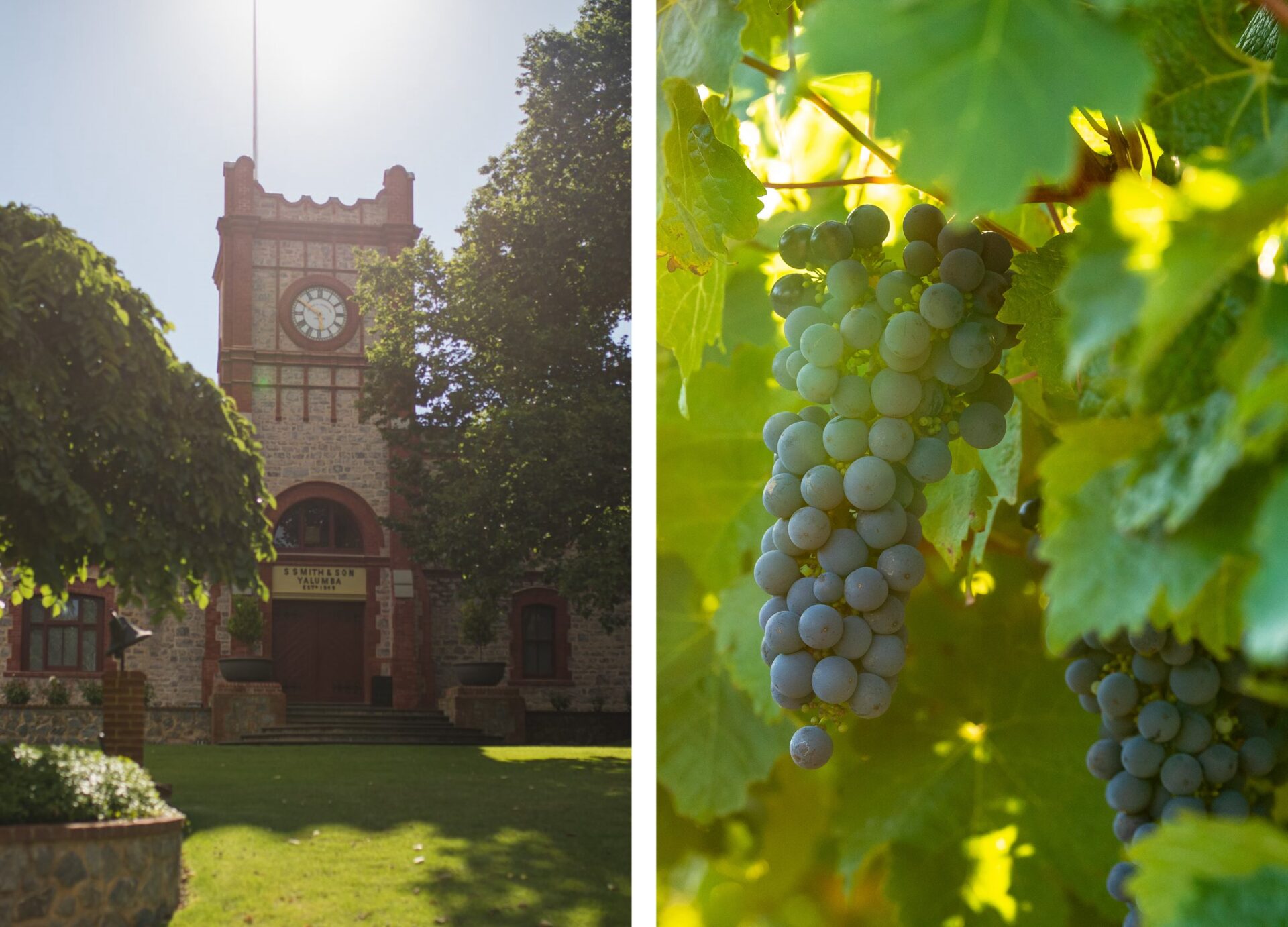
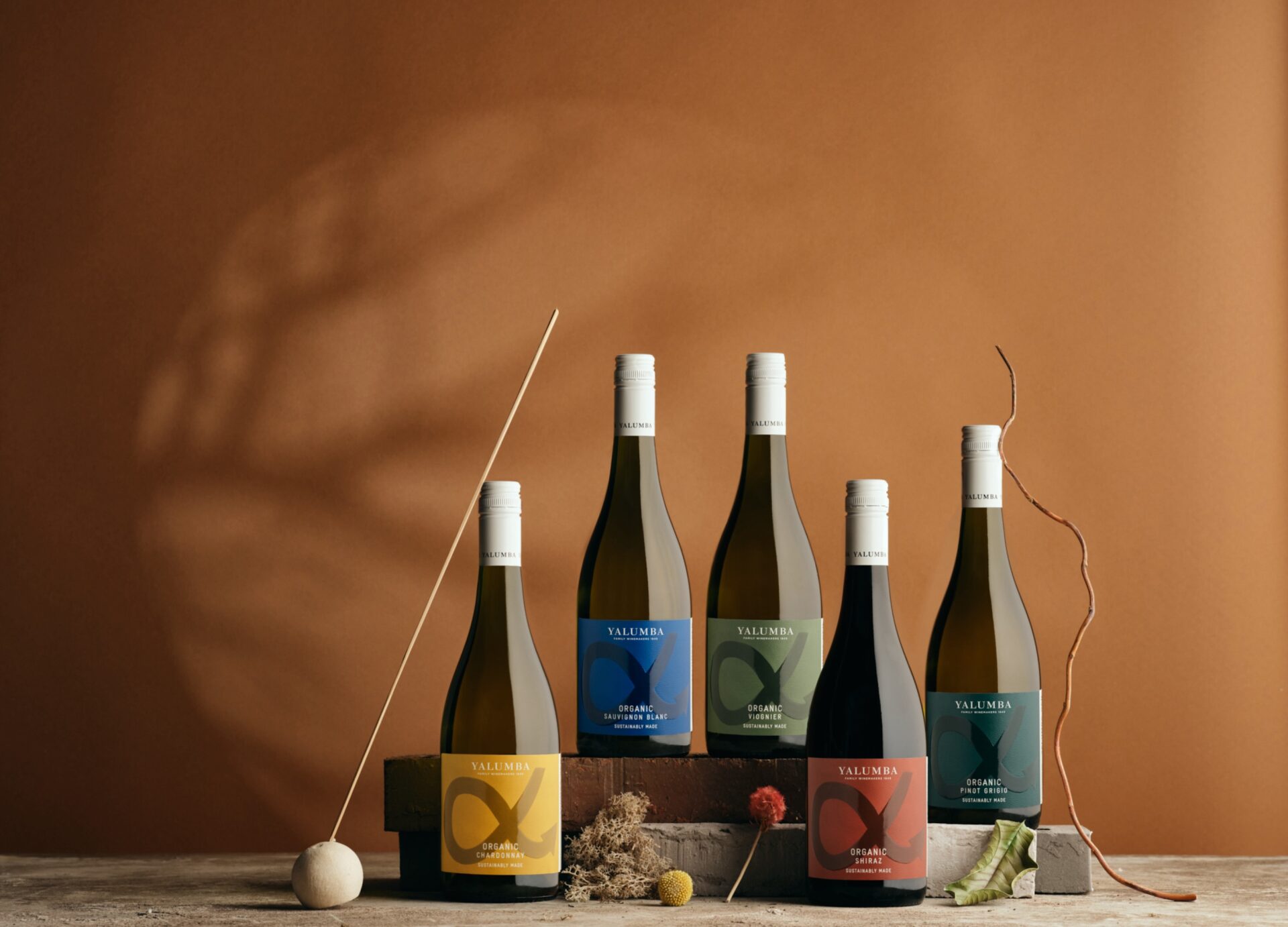
Beyond pure adaptation, Yalumba’s progressive adoption of new technologies and proactive approach to research and trials has put them in good standing to thrive in the face of the current climate and environmental challenges. The Hill-Smith family has naturally assumed a leadership role within the winemaking community, sharing their learnings and even supplying drought-tolerant vines to other vintners through the work of the Yalumba Nursery.
“We believe the right approach for us to have a lasting, valuable impact is to innovate and improve our efficiencies, not simply offset bad practices with good,” Jessica says. “We recognise that we cannot work in isolation – it’s an industry-wide approach, a unified vision. We are, at our core, a wine family.”
In 2009, Jessica’s father Robert established another mechanism for cooperation that is proving to be an invaluable resource. Australia’s First Families of Wine is a collective of 10 multi-generational wineries with more than 1310 years of combined experience. Designed to foster collaboration, promote Australian wines and strengthen the connections between past, present and future, it empowers the future leaders of the Australian wine industry to tackle climate change and other issues head-on.
The urgency of global warming is a critical challenge for the wine industry, but listening to the land has always been at the heart of Yalumba’s wine-making philosophy. Jessica takes courage from her forebears who all fought and overcame the obstacles of their day and led the way in sustainable innovation in the Australian wine industry. “The spirit of the custodian lives at the heart of all we do,” she says. “Operating in a rural environment for more than 170 years, we have learned a few things about the importance of sustainability and the need to exist and evolve without compromising the ability of our future generations to meet their own needs. It’s vital for the future survival of wine.”
THIS ARTICLE WAS PRODUCED IN PARTNERSHIP WITH OUR FRIENDS AT YALUMBA AND THEIR COLLECTION, YALUMBA GEN! COMMITTED TO BETTERMENT WITH A FIERCE DETERMINATION FOR THE FUTURE, THE FAMILY-OWNED WINERY BOASTS MORE THAN 173 YEARS OF SUSTAINABLE PRACTICE AND IS COMMITTED TO ALLOWING NATURE TO WORK ITS MAGIC WITH MINIMAL INTERVENTION. SHOP THE COLLECTION HERE.
JOIN OUR MAILING LIST
Brighten up your inbox with our not-too-frequent emails featuring Peppermint-related news, events, competitions and more!
explore
More articles
Look, I don’t want to make anyone panic but IT’S DECEMBER!!! If you’re planning to give homemade gifts, you’re going to have to act fast. …
Hang out with us on Instagram
Who’s going to the sold out Liberty Fabrics Showcase in Brisbane or Melbourne? 🙋♀️
To say we’re excited is an understatement! Maybe we’re biased because our lovely Laura (Sewing Manager) is walking in the fashion parade along with many other incredible sewists in our community, but also - there’s SO many good things: retail stalls featuring exclusive products, rare finds and all things @LibertyFabrics, and sneak peeks at brand-new quilting and fashion collections, including the Liberty Fabrics Spring/Summer ‘Floral Rebellion’ collection.
Also - Liberty legends Mary-Ann Dunkley (Head of Design) and Anna Buruma (ex-Head of Archive) are flying in from London especially!
Keep an eye on our socials this weekend for BTS! 🌸🌼🌺
Brisbane 7/2/26
Melb 14/2/26
From @Laura_The_Maker:
If you know me irl then you probably know that I only do one take for my reels so enjoy this vid of me saying thousands of words about an exciting collaboration I’m participating in for 2026!
Thanks to the teams @2GreenZebras @Regent_Street_Fabrics and @StyleArc for including me on the runway. I absolutely can’t wait!
Obviously I’ll be hoping for enough scrap fabric to make some kind of accessories…
#libertyfabrics #libertyfabricsshowcase

🌻 The Paddington 🌻
This is a much-loved staple, created for Issue 50 in 2021. We love seeing the #PeppermintPaddingtonTop continually popping up in our feeds!
How stunning is our model Elon MelaninGoddessEfon – she told us it was one of the first times she had been asked to come to a shoot with her natural hair. 🌻
We worked with South African patternmaker Sarah Steenkamp of @FrenchNavyNow_ to create this wardrobe essential – the perfect puff-sleeve blouse. Raglan sleeves make it the ultimate beginner sew, plus the gorgeous back buttons let you add your own personal twist.
Pattern via the link in bio! 🪡
Photos: @KelleySheenan
Fabric: @Spoonflower
Model: MelaninGoddessEfon

“In the 1940’s, Norwegians made and wore red pointed hats with a tassel as a form of visual protest against Nazi occupation of their country. Within two years, the Nazis made these protest hats illegal and punishable by law to wear, make, or distribute. As purveyors of traditional craft, we felt it appropriate to revisit this design.”
Crafters have often been at the heart of many protest movements, often serving as a powerful means of political expression. @NeedleAndSkein, a yarn store in Minnesota, are helping to mobilise the craftivists of the world with a ‘Melt The Ice’ knitting pattern created by @Yarn_Cult (with a crochet pattern too), as a way of peaceful protest.
The proceeds from the $5 pattern will go to local immigrant aid organisations – or you can donate without buying the pattern.
Raise those needles, folks – art and craft can change the world. 🧶
Link in bio for the pattern.
Images: @Gather_Fiber @NeedleAndSkein @a2ina2 @KyraGiggles Sandi.204 @WhatTracyMakes AllieKnitsAway Auntabwi2
#MeltTheIce #Craftivism #Knitting #CraftForChange

TWO WEEKS TO GO! 🤩
"The most important shift is moving from volume-led buying to value-led curation – choosing fewer, better products with strong ethics, considered production and meaningful stories. Retailers have real influence here: what you buy signals what you stand for. At Life Instyle, this means using the event to discover and invest in small-scale, planet-considerate brands that align with your values and your customer’s conscience. Consumers don’t need more things; they need better things, and retailers play a key role in selecting, contextualising, and championing why those products matter."
Only two more weeks until @Life_Instyle – Australia`s leading boutique retail trade show. If you own a store, don`t miss this event! Connect with designers, source exquisite – and mindful – products, and see firsthand why this is Australia’s go-to trade show for creatives and retailers alike. And it`s free! ✨️
Life Instyle – Sydney/Eora Country
14-17 February 2026
ICC, Darling Harbour
Photos: @Samsette
#LifeInstyle #SustainableShopping #SustainableShop #RetailTradeEvent

Calling all sewists! 📞
Have you made the Peppermint Waratah Wrap Dress yet? Call *1800 I NEED THIS NOW to get making!
This gorgeous green number was modelled (and made) by the fabulous Lisa of @Tricky.Pockets 🙌🏼
If you need a nudge, @ePrintOnline are offering Peppermint sewists a huge 🌟 30% off ALL A0 printing 🌟 when you purchase the Special Release Waratah Wrap Dress pattern – how generous is that?!
Head to the link in bio now 📞
*Not a real number in case that wasn`t clear 😂
#PeppermintWaratahWrapDress #PeppermintPatterns #SewingPattern #WrapDress #WrapDressPattern

8 Things to Know About January 26 - from @ClothingTheGaps:
Before you celebrate, take the time to learn the truth. January 26 is not a day of unity it’s a Day of Mourning and Survival for Aboriginal and Torres Strait Islander peoples.
It marks the beginning of invasion, dispossession, and ongoing colonial violence. It’s time for truth-telling, not whitewashed history.
Stand in solidarity. Learn. Reflect. Act.
✊🏽 Blog written by Yorta Yorta woman Taneshia Atkinson.
🔗 Link in bio of @ClothingTheGaps to read the full blog
#ChangeTheDate #InvasionDay #SurvivalDay #AlwaysWasAlwaysWillBe #ClothingTheGaps









